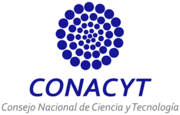Regulatory deficiencies in the incorporation of automation in the labor law of Ecuador.
Abstract
The integration of artificial intelligence (AI) and emerging technologies in the labor market is unavoidable and has a great impact. Workers must adapt and requalify themselves to take advantage of new opportunities and improve their conditions and salaries. However, automation and digitization can exacerbate existing inequalities, perpetuating occupational and wage segregation, especially for women in part-time, informal and low-paid jobs. These dynamics limit their access to positions of high responsibility and negatively affect their professional development, pensions and salaries. The persistent wage gap and risk of job loss underscore the need for proactive measures to ensure that technological transformation benefits all workers equitably.




































1.png)







1.png)







